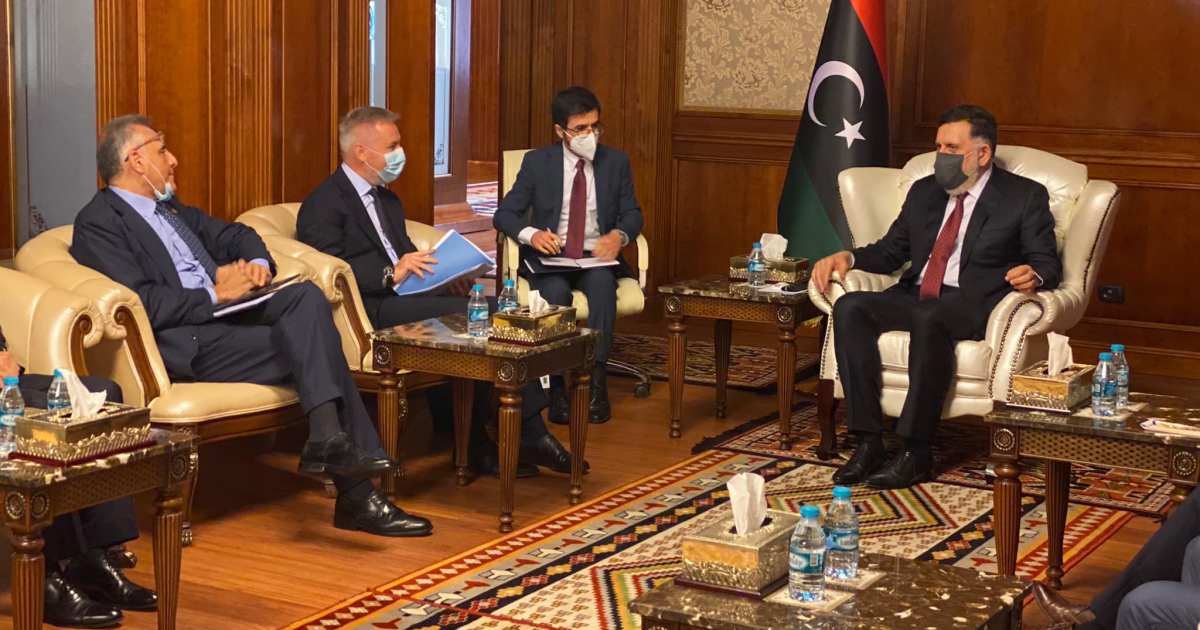The President of the Presidential Council of the Libyan National Accord Government, Fayez al-Sarraj, reiterated that any ceasefire must ensure that those he described as the aggressor did not remain in any location that would allow him to threaten new aggression.
This came in a meeting between Al-Sarraj and the Italian Minister of Defense, Lorenzo Guerrini, who visited the capital, Tripoli, yesterday, Wednesday, and during the visit he also met Undersecretary of the Ministry of Defense Salah Al-Namroush.
The two sides discussed security and military cooperation, mine clearance and the training of Libyan soldiers in Italian military colleges.
The two parties stressed the urgent necessity for the return of oil production under the supervision of the Libyan National Oil Corporation, and the return of Italian companies to resume their activities in Libya.
In turn, Italian Defense Minister Lorenzo Guerrini said that "his country made a great effort to strengthen its military presence in Libya, by setting up military hospitals and contributing to demining operations, as well as training the Libyan military."
In a related context, Turkish Foreign Minister Mevlüt Çavuşoوlu will arrive in the Libyan capital later in the day, and senior officials of the reconciliation government are scheduled to meet to discuss developments in the Libyan crisis and international calls for political solutions to it.
Al-Jazeera correspondent in Tripoli, Ahmed Khalifa, indicated that this visit is the second for the Turkish minister after the fighting ended in the south of the capital.
The correspondent added that Gawishoglu will meet with the head of the Supreme State Council, Khaled al-Mashri, and later on he will meet Fayez al-Sarraj and a number of Libyan ministers.
The forces of retired Major General Khalifa Hifter, with the support of Arab and European countries, launched an aggression against Tripoli on April 4, 2019, which resulted in deaths and injuries among civilians, as well as extensive damage, before incurring extensive losses, amid many calls now for dialogue and a political solution to the worsening crisis since Years.
On the other hand, the Libyan army continues to mobilize large numbers of its forces for about 7 weeks in preparation for resolving the battles militarily in the event that international efforts fail to find a peaceful solution that will avoid the country from further destruction.

